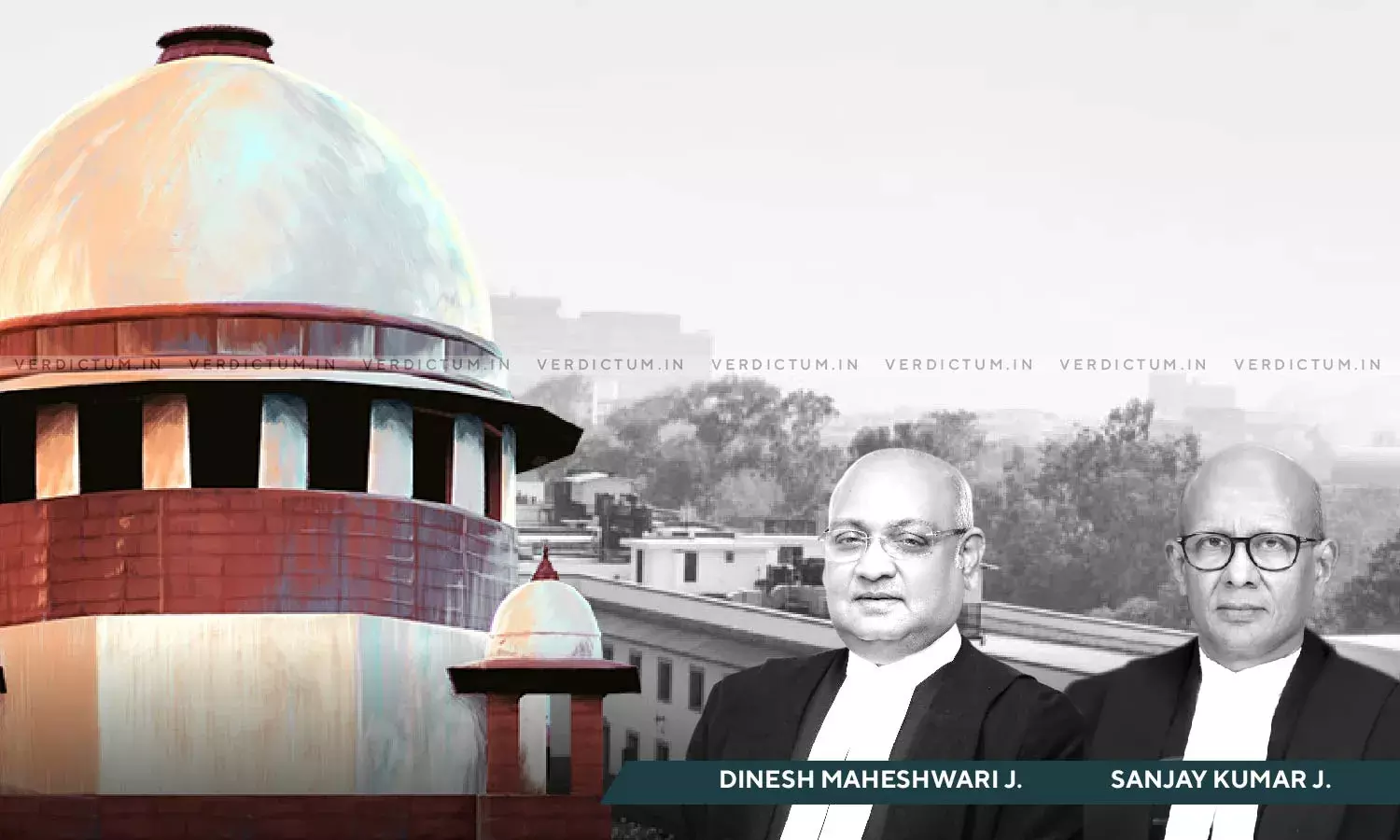Apex Court’s Power Transferring Criminal Cases U/s. 406 CrPC Remains Intact Incase Of Cheque Bounce Offences For Ends Of Justice: SC

The Supreme Court held that its power to transfer criminal cases under Section 406 of the Code of Criminal Procedure remains intact in relation to the offences under Section 138 of the Negotiable Instruments Act, 1881 if it is found expedient for the ends of justice.
The Court was dealing with the two transfer petitions filed under Section 406 of CrPC by the petitioners seeking transfer of the cases pending before the Civil Judge, Senior Division, Nagpur to the South West District Courts, Dwarka, New Delhi.
The two-Judge Bench comprising Justice Dinesh Maheshwari and Justice Sanjay Kumar said, “The power of this Court to transfer pending criminal proceedings under Section 406 Cr.P.C. does not stand abrogated thereby in respect of offences under Section 138 of the Act of 1881. … notwithstanding the non obstante clause in Section 142(1) of the Act of 1881, the power of this Court to transfer criminal cases under Section 406 Cr.P.C. remains intact in relation to offences under Section 138 of the Act of 1881, if it is found expedient for the ends of justice.”
The Bench directed that the transfer petitions pending before the Civil Judge be transferred to the South West District Courts in Dwarka and tried along with the concerned complaint cases.
Advocate Rajeev Singh and Advocate Rajmangal Kumar appeared for the petitioners while Advocate Chirag M. Shroff appeared for the respondent company.
Brief Facts –
The respondent company i.e., Atlanta Limited filed six complaint cases against the petitioners under Sections 138 and 142 of the NIA, 1881. The six cheques, which were the subject matter of these complaint cases, were issued by the petitioners in connection with the purchase of a NAWA-make crusher plant from the respondent for a sum of Rs. 1,88,80,000/- under an agreement. The sale consideration was to be paid in seven installments by way of cheques and the first cheque issued by the petitioners for a sum of Rs. 11,80,000/- was duly honoured upon presentation by the respondent.
The remaining six cheques, however, were dishonoured on the strength of ‘Stop payment’ instructions and the first two cheques that came to be dishonoured were presented by the respondent through its bank in Nagpur. The first two complaint cases were accordingly filed before the Courts at Nagpur and the remaining four cheques were thereafter presented by the respondent company through its bank in New Delhi due to which those complaint cases were filed before the Dwarka Courts, New Delhi.
The Supreme Court in view of the above facts asserted, “… institution of the first two complaint cases before the Courts at Nagpur is in keeping with the legal position obtaining now. … Section 406 Cr.P.C. would stand excluded vis-à-vis offences under Section 138 of the Act of 1881.”
The Court further noted that as the six complaint cases pertain to the same transaction, it would be advisable to have a common adjudication to obviate the possibility of contradictory findings being rendered in connection therewith by different Courts.
“As four of the six cases have been filed by the respondent company before the Dwarka Courts at New Delhi and only two such cases are pending before the Courts at Nagpur, Maharashtra, it would be convenient and in the interest of all concerned, including the parties and their witnesses, that the cases be transferred to the Dwarka Courts at New Delhi”, directed the Court.
Accordingly, the Apex Court allowed the transfer petitions.
Cause Title- Yogesh Upadhyay and Anr. v. Atlanta Limited
Click here to read/download the Judgment


